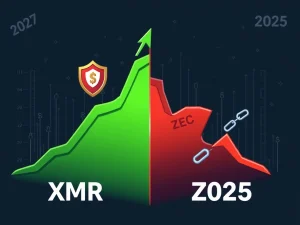Tornado Cash Trial Verdict Looms: A Defining Moment for Crypto Privacy and DeFi

The crypto world is holding its breath as the Tornado Cash trial nears its verdict. This landmark case could redefine the legal landscape for decentralized finance (DeFi) and privacy tools. With co-founder Roman Storm facing serious charges, the outcome may determine whether developers can be held liable for how their open-source code is used.
What’s at Stake in the Tornado Cash Trial?
The U.S. Department of Justice has charged Storm with:
- Conspiracy to commit money laundering
- Sanctions evasion
- Operating an unlicensed money transmitting business
A conviction could result in up to 40 years in prison, sending shockwaves through the crypto development community.
Why the Tornado Cash Case Matters for DeFi Regulation
This trial represents a crucial test for how existing financial regulations apply to decentralized protocols. Key issues include:
| Prosecution Argument | Defense Argument |
|---|---|
| Developers knowingly enabled $1B+ in illicit transactions | Writing open-source code isn’t criminal |
| Failed to implement AML/KYC safeguards | Decentralized nature prevents control over usage |
| Violated IEEPA sanctions | Financial privacy is a fundamental right |
How the Verdict Could Impact Crypto Privacy Tools
The jury’s decision may:
- Chill innovation in privacy-focused development
- Set a precedent for global DeFi regulation
- Determine liability for open-source contributors
- Influence future enforcement actions
The Broader Implications for Crypto Legal Precedent
This case highlights the urgent need for regulatory clarity in crypto. As blockchain technology evolves, lawmakers must balance:
- Innovation vs. national security concerns
- Privacy rights vs. financial transparency
- Decentralized ideals vs. traditional compliance
FAQs About the Tornado Cash Trial
Q: What is Tornado Cash?
A: An Ethereum-based privacy tool that obscures transaction origins and destinations.
Q: Why was Tornado Cash sanctioned?
A: The U.S. Treasury alleged it helped launder funds for North Korea’s Lazarus hacking group.
Q: What happens if Storm is convicted?
A: It could establish dangerous precedent holding developers liable for code misuse.
Q: How might this affect other privacy tools?
A: Developers may avoid creating similar tools due to legal risks.
Q: When will the verdict be announced?
A: The jury is currently deliberating; the decision could come any day.










